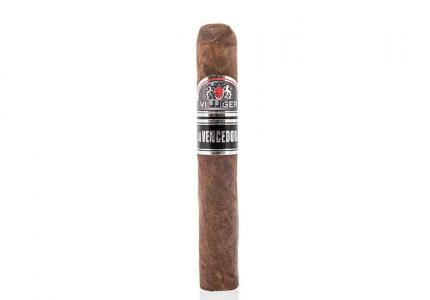
To get to the factory, we don’t go through the cigar capital Santiago de los Caballeros in the north of the country. We find it on the outskirts of the capital city Santo Domingo.
This is where Matia Maragoto came after leaving Cuba. In only 20 years, his family managed to establish a factory, which today employs 170 staff members and is consistently growing. The Maragotos don’t have the path to tobacco mapped out for them in any way.
Matia’s uncle Adalberto Ruizcalderon came to them with the suggestion of getting into the cigar business. He also provided the first tobacco – during the cigar boom, no easy undertaking – and acted as an advisor to the family. That was in 1996.
We do a round through the spacious facility. In the galleria, 80 torcedores are working. Our eyes fall on freshly rolled cigars, such as Flor de Ynclan, 1888, and La Libertad. In some of the rooms, the staff is working on the production of the classic Villager boxes; in others, employees are putting rings on the Corrida cigars and sorting them into boxes.
In the meantime all the Dominican cigars of the Swiss family company are made here in the Matias factory. He himself is responsible for the development of the blends. It sounds astonishing that Villager, the grand seigneur of the European cigar branch and himself a very well educated master of his trade, places so much trust in the development of new cigars in Matias capabilities.
Villiger is connected with the Maragotos by an almost familial relationship. Since the beginning of their collaboration, the two companies have been sealing agreements with a handshake.
We found the tobacco warehouse in the new buildings. Here, leaves from all possible provenances that are used for established as well as new blends are stored. The greater part of it comes from the warehouse of the renowned family Maruschke, with whom Maragotos work closely together. They have known each other since the early years of the factory.
In 1998 when the path of Villager and Maragoto crossed, the ABAM factory had just moved to new premises in the middle of a district in which car workshops line the streets. The move to rent a much larger facility was not necessarily due to a rapid growth in production. In the residential area where the family had previously run the factory, disapproving residents had forced them to leave.
The courageous decision soon proved to be the right one. An acquaintance of Maragoto approached Villager with the request to give the young cigar manufacturer from Santo Domingo a chance.
Matias sent a sample to Europe of the blend that would later be released on the market as Bock y Ca, along with a price list. But the hoped for response never came. Upon enquiry, The Cuban encountered Swiss negotiating skills: Villiger liked the cigars, but insisted on a lower price, which Matias didn’t want to concede to in the beginning. He says it was probably a question of pride. Ultimately, he has never regretted conceding, and today he agrees with Villager he says, and smiles mischievously. He is very tough.
It wasn’t until two years later that the two men would get to know each other better, and to lay the foundation for what is still a close friendship today. Both visitors of the festival del Habano, one day, Matias found Mr Villiger chatting amicably and drinking coffee in the parents house of his wife, Aidee. Villager had gone looking for his manufacturer who was rooted in Cuba.
When you ask him today about how one wins over the trust of such a great figure in the industry like Heinrich Villager, Matias says that it probably also had to do with the fact that they didn’t only treat him like a client – the chemistry with the family had simply been right.
And today, still, Villiger would prefer the house of the family over a hotel. It should be clear, however, that the well versed tobacco man like Villager doesn’t simply base his cooperation with ABAM on pure sympathy. We even hear that Villiger speaks of the Dominican factory as if it were a part of his own corporation, even though it lies entirely in the hands of the Maragoto family.
On our tour through the factory, what becomes obvious is the constant effort of the Maragotos to take on challenges and to grow with them. The skills of Jose, Matias brother, to find better solutions for the workflow in the factory, such as developing the pneumatic presses for the rollers, finds its equivalent in Matias fiddling with new blends, and it can take months for him to be prepared to share them with Heinrich Villager. And Matias is always open to Gladys Rodriguez feedback. She worked in Cuba’s H.Upmann factory for many years and now runs quality control at ABAM. As a confidante of Villager, not only is she familiar with his preferences, but she is also a master of her trade. And the fundamental consensus of any tobacco master is that one never stops learning about tobacco.
To discover more about this interesting story, you can contact us today at Taylors Tobacconists.

THIS WEBSITE CONTAINS IMAGES OF AGE RESTRICTED PRODUCTS. YOU MUST BE AT LEAST 18 YEARS OF AGE TO ENTER. WE RUN CHECKS ON ORDERS AND WILL NOT DELIVER AN ORDER WHERE WE BELIEVE THE RECIPIENT IS UNDER 18.
PLEASE LEAVE NOW IF YOU ARE UNDER 18.